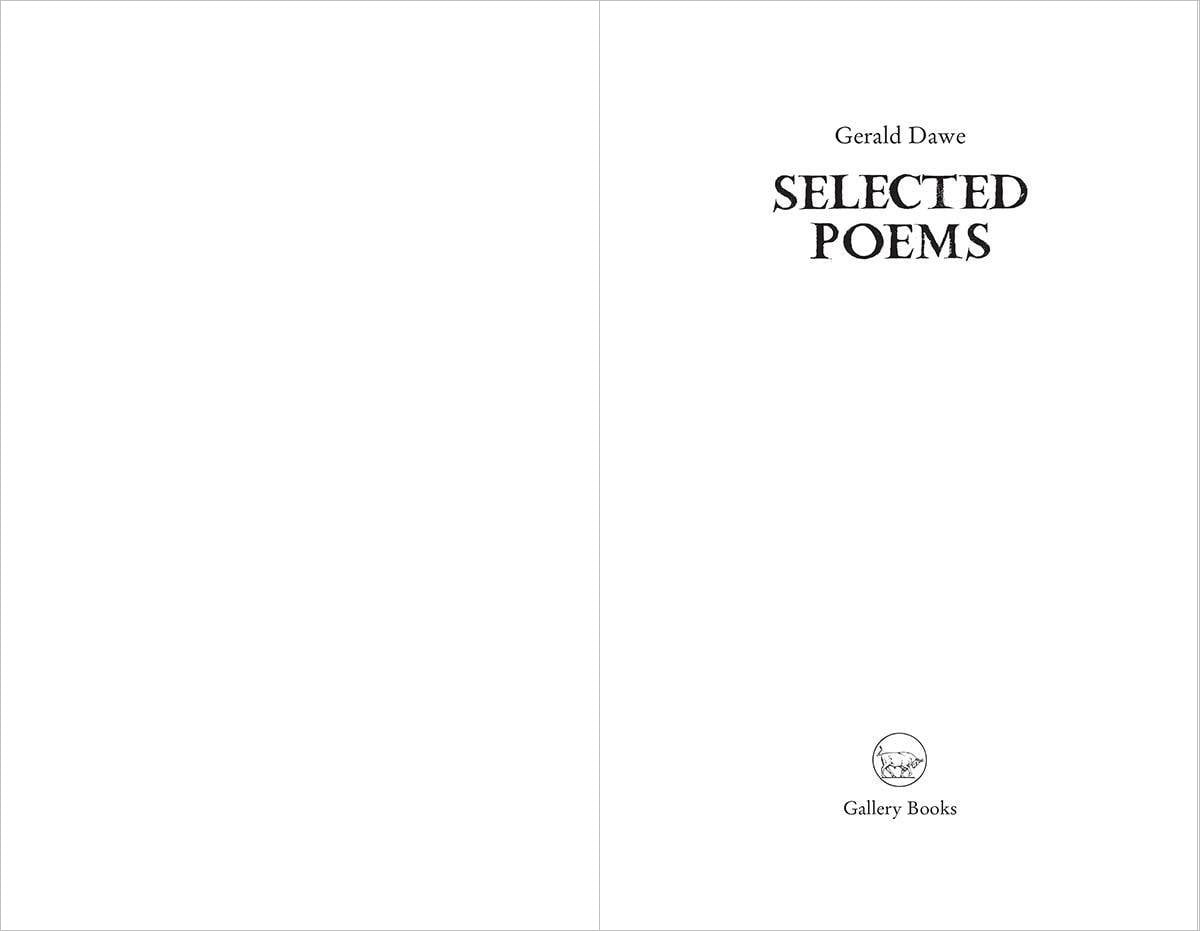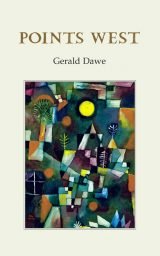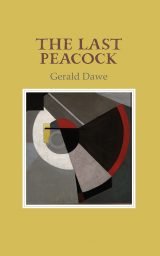Since its first appearance in book form in 1978 Gerald Dawe’s poetry has been praised for its ‘feeling of unpadded completeness and unforced structure’ (Alastair MacLean, TLS). His achievement has been described by Dennis O’Driscoll as ‘brave and risk-taking, finely tuned and perfectly pitched’ and, by John McAuliffe, as ‘serious and seriously enjoyable’. Selected Poems is a generous representation of this gifted poet’s work. Spanning over thirty-five years, in poems that move through Irish city and country life — Belfast, Galway, Dublin — to Italian, Swiss and Polish landscapes and the American east coast, both of the present and ranging through the past half-century, Gerald Dawe’s clear and unadorned voice — in the words of Terence Brown — articulates ‘an imagination of European scope’.
Gerald Dawe’s subtlety and lyric control are the mark of a true poet; but it is this graceful and apparently effortless incorporation of the human struggle for transcendence which is the real measure of his importance.
— Fiona Sampson, The Irish Times
The work of Belfast poet Gerald Dawe has deservedly won praise over the years, and this new volume of selected poems serves as an ideal introduction to his work. The poems gathered here encompass a 35-year period, and are some of his finest. While it would be easy to associate Dawe with the Northern School, he cuts an international figure.
His works take place across a variety of backdrops — Belfast, Galway, Dublin, the east coast of the US and Italy, to name a few — reflecting a career which has seen him associated with institutions such as Trinity and Boston College. Dawe is respectful of that path trodden by great Irish literary figures such as James Joyce (“a preoccupied man in shabby gutties”), but is unshackled by the past. An enjoyable collection that is by turns political and personal.
— Julian Fleming The Sunday Business Post
Belfast poet Gerald Dawe’s seven collections distilled into one, with ‘home territory’ the dominant theme. Ultimately, poetry is about writing something worth reading. Does the poem speak to me? Does the poet speak of things worth hearing? The answer to both questions, in the case of Belfast poet Gerald Dawe, is ‘yes’. His Selected Poems, distilled from seven collections over 35 years, mark his unique voice, the poem as reflection, as prayer, as passion.
The lines are often simple but are full of depth and, in that, they distinguish themselves from the banal and narcissistic tweets and blogs that blight. In ‘Sheltering Places’, for instance, ‘The storm is reaching/home territory, stretching/over the hills down/into our sheltering places’. Those themes of ‘storm’, ‘sheltering places’ and ‘home territory’ are ones that often appear in this collection — but they are always fresh.
That should be of no surprise because Dawe, as he travels, looks up and takes in all that he sees. He has a tap root in the North to be sure, but he is not bound by the North. The area, the home territory, nourishes him — frightens him on occasion — but the ‘old values’ stand him in good stead in his wanderings. That, I suppose is what a tap root is for: it secures you but it lets you grow too. How appropriate then that the second poem featured here is ‘Names’ with its eloquent observation: ‘They call this ‘the Black North’,/black from the heart out./It doesn’t matter about/particularities when mouths/mumble the handy sayings/and day-in minds tighten’.
Yes, the Black North. Who of us has not felt that particular mark of Cain on them as they travel and realise that ‘You need never recall/the other names’? And what about that other trait we are famous for, so astutely observed in ‘Resistances’: ‘I keep the head down/and mouth shut and walk about/with an independent air,/imagining all their neat homes/our mutual incomprehension’.
Keeping your head down. It is such a common saying, yet one which instantly resonates and one which encapsulates a people and their way of thinking. Past deeds continue to haunt — and haunt is the correct word — Dawe even while abroad, even in places of great beauty like Lake Geneva, when ‘for some reason’ he remembers: ‘a body’s slumped,/down a back lane’. The act of remembrance, of reading too, it could be argued, is nothing short of a prayer.
There is love. There is always love. There was love through the darkest days of the Troubles. People loved, married, raised children, found sanctuary and intimacy in each other’s arms while others in streets and dark government offices blasphemed against the gift of life and took it remorselessly.
In ‘Solstice’, the poet welcomes a daughter’s birth. But life brings forth love and love brings forth life: ‘I saw the ice outside fall/and imagined the fires burning/on the Hill of Tara ring’. What a beautiful image and how powerful — the fire of life on one of Ireland’s most hallowed sites rising up in the poet’s imagination to greet his child, a child who generates wordless, bright joy in time.
Love of a different type is celebrated tenderly in ‘Night and Morning’: ‘I hear her shower, the water spills./She moves, draws the curtain rail, towels,/her feet pad about in the smallest room,/life and soul, all of her, overhead; unseen.’
That is Dawe too, perhaps, drawing back a curtain, padding about overhead, life and soul, but thankfully seen, very much seen.
— Pól Ó Muirí, Culture Northern Ireland






